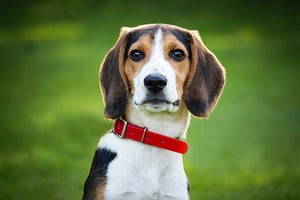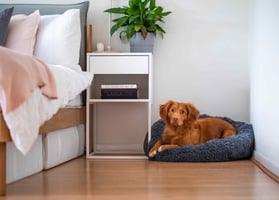Eating their own poop is a surprisingly common behavior among dogs. Though it may be gross and...
Why Does My Dog Eat Its Own Poop and How Can I Stop It?
Coprophagia, or the act of eating one’s own feces, is a common problem among pet owners. Dogs of all breeds, ages, and sizes may engage in this behavior, leaving their owners wondering why and how to stop it. In this article, we discuss the reasons why dogs may eat their own poop, potential health risks associated with the behavior, and methods for discouraging it.
Why Do Dogs Eat Their Own Poop?
There are several possible explanations for why a dog may eat its own feces. Some of the most common include:
- Nutritional deficiency: Dogs may be lacking essential nutrients in their diet, leading them to search for alternative sources of nutrition. This is usually seen in puppies and elderly dogs.
- Boredom: Dogs may start eating their own poop out of boredom or lack of stimulation.
- Medical issue: Coprophagia can be a sign of a medical issue such as pancreatic or intestinal problems.
- Genetic predisposition: Some dogs may eat their own poop due to a genetic predisposition.
Health Risks of Dog Eating Its Own Poop
Though eating one’s own feces is generally not considered a health risk, there are some potential issues that can arise from this behavior. Ingesting fecal matter can lead to gastrointestinal upset and even the spread of parasites and disease. Additionally, dogs may ingest objects such as rocks and sticks along with the feces, which can cause blockages in the digestive tract.
In some cases, coprophagia can lead to the spread of bacteria and parasites, including Giardia, Salmonella, and Campylobacter. These can cause severe diarrhea and vomiting, which can be dangerous in puppies and elderly dogs.
It is important to note that coprophagia is not always a sign of an underlying health issue. In many cases, it is simply a behavioral issue that can be corrected with some effort and patience.
How to Stop Dog Eating Its Own Poop
If you suspect your dog is eating its own poop, the first step is to take it to the vet for a check-up. This will help rule out any underlying medical issues that may be causing the behavior. Once you’ve ruled out any medical issues, you can begin to work on discouraging the behavior.
One of the most effective ways to stop a dog from eating its own poop is to provide them with ample exercise and mental stimulation. Taking your dog for regular walks and playing with them can help to keep them from becoming bored and engaging in this behavior.
You can also try adding fiber to your dog’s diet. Fiber helps to make the feces less appetizing and can help to discourage your dog from eating it. Additionally, adding probiotics to your dog’s diet can help to improve digestion and reduce the urge to eat their own feces.
Finally, you can try using deterrents such as bitter apple spray or lemon juice to make the feces unappetizing. If your dog is eating the feces while they are still in the yard, you can also try picking up the feces as soon as possible to reduce the chances of your dog eating it.
Conclusion
Coprophagia, or the act of eating one’s own feces, is a common problem among pet owners. Though it is generally not considered a health risk, there are some potential issues that can arise from this behavior. The first step to stopping a dog from eating its own poop is to take it to the vet for a check-up to rule out any underlying medical issues. Once you’ve ruled out any medical causes, you can begin to work on discouraging the behavior by providing ample exercise and mental stimulation as well as adding fiber and probiotics to their diet. Finally, you can try using deterrents such as bitter apple spray or lemon juice to make the feces unappetizing.



